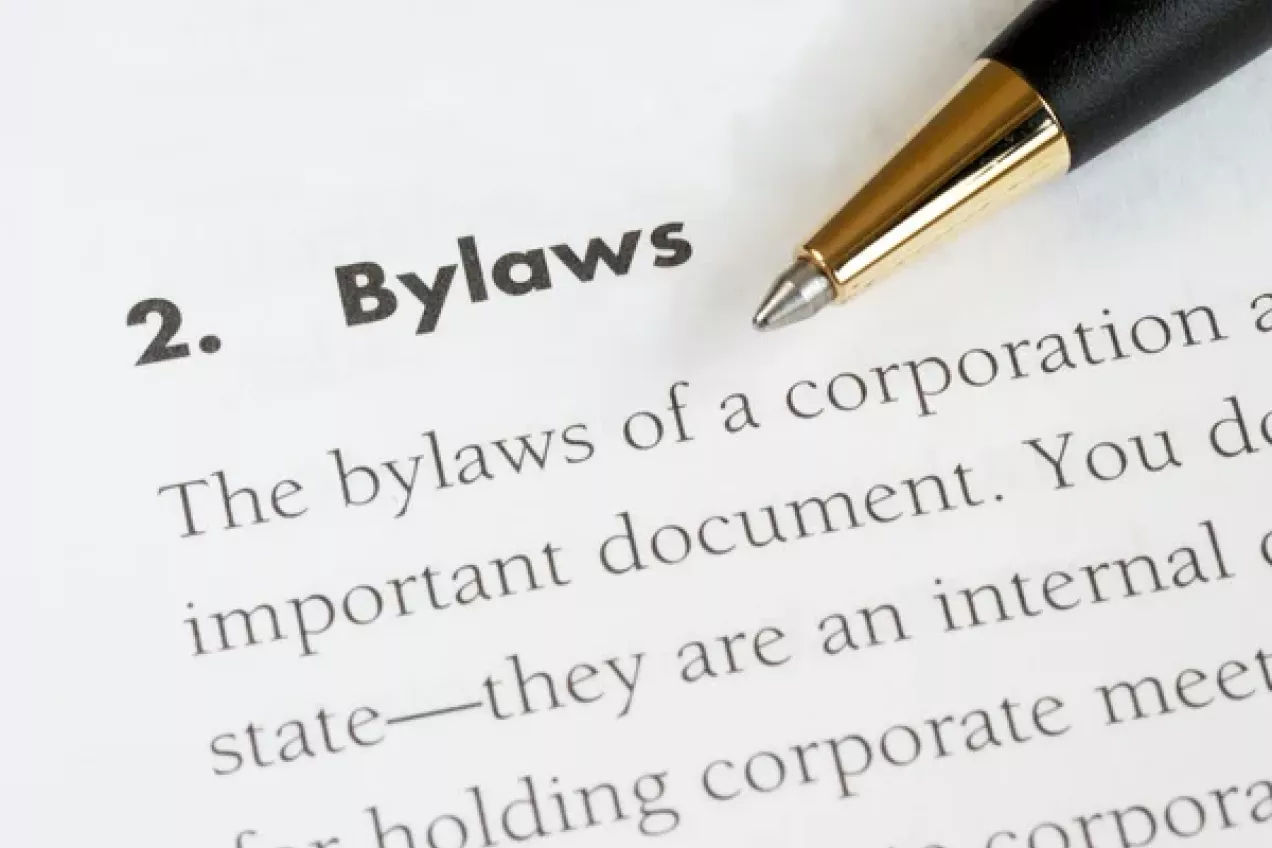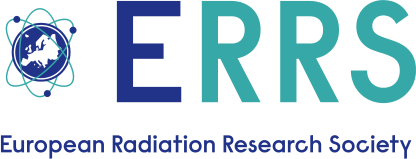The ERRS bylaw
The bylaw of the European Radiation Research Society
The bylaw of the ERRS is registered in Belgium. Only the deposited version in the French language has a legal value.
The following English translation was done upon request of the Council with the sole objective of informing the ERRS members about the content of the bylaw.

Extracts of the Appendix of the Belgian Monitor of July 30, 1964, N.3831, modified on June 15,
1989, N.7124.
ARTICLE ONE
It is made up a non-profit-making international association with scientific goal called "European
Radiation Research Society" having its registered office in Liege (Belgium), CHU of Sart Tilman, Tour of Pathology +1, (B 35), 4000 Liege 1.
Legal district of Liege.
The November 5, 1959, was founded "the Association of the Radiobiologists of the Countries of Euratom in Brussels" (statutes published with the appendix of the Belgian Monitor of November 05, 1959, n° 4481, pg 2063).
Between the undersigned's:
- RAJEWSKY Boris, Frankfurt (FRG);
- CHEVALLIER Andre, Strasbourg (France);
- BUZZATI-TRAVERSO Adriano, Pavia (Italy);
- RISCHARD Charles-Edouard, Luxembourg (Grand Duchy);
- COHEN Jacob, Rijswijk (Nederland);
- BACQ Zénon-Marcel, Liege (Belgium).
An extraordinary general assembly is convened on March 23, 1964 in Zurich and "the Association of the Radiobiologists of the Countries of Euratom in Brussels" changes name to become the "European Society of Radiobiology" ("European Society for Radiation Biology").
(Statutes published with the appendix of the Belgian Monitor of July 30, 1964, n°3831, pg 1522-1523).
The Board of directors is then composed of:
- ZIMMER Karl, Karlsruhe (RFA), President,
- BETZ Emile H., Liege (Belgium), Secretary-Treasurer.
OBJECT ¤ ARTICLE TWO
The Company has the aim of promoting scientific research, information exchanges, and collaboration in the physical, chemical, biochemical, biological and medical aspects of research on radiations.
MEMBERS ¤ ARTICLE THREE
a) The Company consists of effective members, associate members, student members and
members of support. The minimum number of the members is fixed at eleven.
b) Are called for effective membership only the people having contributed meritoriously to the advance of research on radiations. The qualification will be given mainly by the examination of the titles and public works of the candidate, by the Board of directors.
c) Individuals or legal entities active in the field of research on radiations or in other fields of the natural science will be eligible as associate members, according to a decision taken by the General Assembly. The associate members have all the privileges of the effective members
except the voting rights and to exert a function in the council.
d) Students in pre studies or post doctorates in the field of research on radiations or in other fields of the natural science are eligible as student members for a duration limited to six years. The student members have the privileges of the effective members except the voting rights or and to exert a function in the council.
e) People, morals or physics, will be able to receive the membership of support on decision of the General Assembly if by their actions they helped to a significant degree the Company with her aims. A member of support can vote or exert a function within the Council in the only case where he is an effective member.
ARTICLE FOUR
Effective members choose those among them which will be member of the Council. They will
pay the annual contribution fixed by the Administration Council. On basis of a report of the
merits of the candidates, report submitted to them by the Administration Council, they decide
admission or not of those as effective member, associate member, student member or member of
support. The simple majority of the votes of the assembly will decide admission. The same
procedure will be followed in the event of exclusion of a member effective, associated, student
or of support, but this one will require a majority of two thirds of the voices of the General
Assembly to have effect. The members having ceased by death, resignation or exclusion to be
part of the Society, are without rights on the funds of a society.
CONTRIBUTION ¤ ARTICLE FIVE
The annual contribution, due by the effective associated and student members, will be given each
year by the General Assembly. It cannot be higher than the sum of one hundred euros. Any
member late of payment of two contributions will cease being part of the Society.
ARTICLE SIX
The General Assembly is composed of effective members and has the full power allowing the
achievement of the objective of the Society.
ARTICLE SEVEN
The General Assembly meets automatically each year, at the location of the registered office or
the place determined by the Council members, by simple letter posted or courriel sent at least
twenty and one days before the fixed date. The effective members will have the right to be
represented by another effective member carrying a proxy authorizing it to vote in its place the
resolutions proposed by the Assembly.
ARTICLE EIGHT
Except in the exceptional cases envisaged in article seventeen of these statutes, the resolutions
are taken by a simple majority of the effective members present and they are made available to
all the members. It cannot be ruled on any object which is not in the agenda, except on resolution
approved by the four-fifths of the members present.
ARTICLE NINE
The resolutions of the General Assembly as well as the yearly report are registered in a register
signed by the president and preserved by the secretary-treasurer who will hold it at the disposal
of the members.
ADMINISTRATION ¤ ARTICLE TEN
a) The company is managed by a Council elected by the assembly. The council is composed of
nine members at least of which a Belgian nationality secretary-treasurer. The members of the
council are elected by the General Assembly by the simple majority of the effective members
present. There cannot be more than two representatives of the same nation within the council,
except for the honorary president.
b) The members of the council other than the secretary-treasurer are renewed per half every four
years. The members leaving for the first time are random sorted.
c) The Council elects a president and a vice-president. The president remains in load during two
years; the vice-president becomes then president and the council elects a new vice-president. In
the event of failure of the president, this one is replaced by the vice-president. In the event of
failure of both the president and the vice-president, those are replaced by the oldest member of
the council.
d) The secretary-treasurer is elected by the assembly every four years. He can be re-elected
immediately.
e) The members of the council can propose to the General Assembly the election of an honorary
president. If the proposal of the Council is approved by the majority of the members present at
the General Assembly, the honorary president remains in function during three years. He is
automatically member of the council in addition to the members envisaged in article 10 a).
f) Without prejudice, the members do not contract in such quality any personal obligation
relative to the engagements of the non-profit-making international association.
ARTICLE ELEVEN
The council is consulted when the need is felt and on signed request of a member of the council.
The resolutions are taken in the majority of the administrators. The voice of the president is
dominating. Attributions of the council are as follows:
a) To manage all the funds of the Society and to distribute them according to the needs for this
one;
b) To take all the initiatives desirable and in conformity with the objectives of the Society;
c) To define the conditions of organization of the scientific meetings of the Society; in particular
the distribution of their possible benefit equally between the present Society and the national
Company of the organizing country;
d) To examine the candidatures of the new members and to submit it to the General Assembly;
e) To examine the complaints carried against certain members and to propose possible sanctions
at the General Assembly;
f) To examine the requests and proposals which are forwarded to it by the Effective Members
and to decide on the opportunity of submitting them to the General Assembly;
g) To work out a draft of internal regulation;
h) To propose to the General Assembly the dissolution of the Society.
ARTICLE TWELVE
Resolutions of Administration Council are registered in a register signed by the President and
preserved by the Secretary-treasurer who will hold it at the disposal of the members of the
Society.
ARTICLE THIRTEEN
The Council has full power of management and administration under attributions of the General
Assembly. It can delegate the daily management to its president or to an administrator or to an
assistant.
ARTICLE FOURTEEN
All acts which engage the company, except special procurations, are signed by two members of
the Council who do not have to justify capacities with respect to third.
ARTICLE FIFTEEN
Judicial actions, as well in require as in defence, are followed, continued and hurried up by the
Administration Council represented by his president or a member of the council indicated for
this purpose by this one.
BUDGET AND ACCOUNTS ¤ ARTICLE SIXTEEN
The annual exercise is closed each year on December 31 so that the accounts can be presented at
the approval of the General Assembly at the annual meeting.
The budget for the following exercise, as proposed by the Council, is to be presented at the same
time as the assessment of the past exercise.
The resources of the company consist of:
1° contributions of the members;
2° the gifts, subsidies or legacies which can be allotted to it.
MODIFICATIONS OF THE STATUTES AND DISSOLUTION ¤ ARTICLE SEVENTEEN
Any proposal having for object a modification of the statutes (or dissolution) must emanate from
the Council, or at least from 25 percent of the effective members of the Society. In this last case,
the proposals will have to be addressed to the Council in writing at least three months before the
date of the General Assembly. The Council must communicate to the members of the Society, at
least two months in advance, the date of the general assembly which will rule on the
aforementioned proposal. No decision will be acquired if it is not voted with a majority of two
thirds of the effective members of the Society. However, if this General Assembly does not get
together the two thirds of the effective members of the Society, a new General Assembly will be
convened under the same conditions as above, which will rule definitively on the proposal in
question, in the majority of two thirds of the effective members present. The assembly will fix
the mode of dissolution and liquidation of the Society and will define the destination of the
inheritance to a disinterested goal.
GENERAL DISPOSITION ¤ ARTICLE EIGHTEEN
All that is not envisaged by these statutes and in particular the publications to be made in the
Belgian Monitor will be regulated in accordance with the provisions of the Belgian law.
